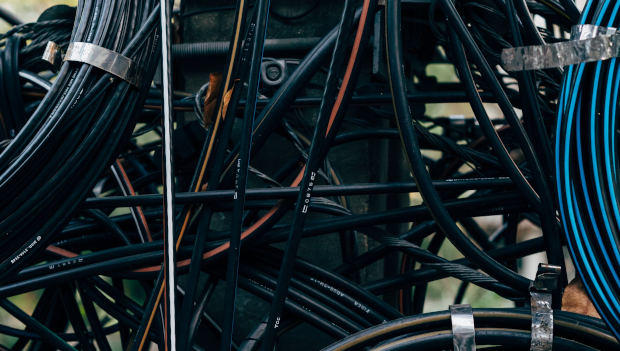
ISDN joins list of technologies whistling past the graveyard
The end of the line is in sight for ISDN, the digital telephone network that offered, for the time, relatively high speed Internet connectivity in the 1990s.
Already being shut down in the United States, ISDN (Integrated Services Digital Network), which allowed for the (costly) multiplexing of multiple lines to carry more data, will pass into history in Britain next year and while no date has been given for the switch off in Ireland but rest assured: it is coming.
Of course, ISDN was overtaken by broadband decades ago at least as far as connecting to the Internet goes. Niche uses, such as radio studio link-ups continued, however, and it is these that now require urgent replacement technologies.
It is not just changes in connectivity that cause panic in forgotten corners of the tech world. In fact, there is an entire industry out there profiting from trailing edge technology.
Operating system AracOS exists today not because it is a fun project for people interested in low level programming, but because it is the continuation of OS/2, an OS which IBM in the 1990s hoped would replace Microsoft Windows. Clearly, it never did, however, it found several niche uses – including running bank ATMs – so it never truly died.
Stories of ancient, creaking mainframes running government systems, meanwhile, tend to be overblown: mainframes, are very much a current technology, though It is true that governments in several countries have run into problems including a shortage of people who can run the things and, in at least one case buying replacement parts from eBay.
And while I don’t expect a vinyl-like revival of floppy disks any time soon, it is true that some older mission critical systems still use them. Worryingly, it is also true that they are no longer in mass production. Today, grabbing old stock from FloppyDisk.com is pretty much the only option for those in need.
If all of this seems to run counter to today’s mania for digital transformation and deploying new technology just because we can, that is because it does.
Of course we should not let nostalgia cloud our judgement: annoying as it is when Apple or Microsoft declare the end of support for a system, it is unreasonable to expect hardware and software to work forever. In addition, the difficulties experienced by the engineers and systems administrators who have to keep antediluvian IT gear up and running cannot be overstated.
Still, while the scarcity of parts or a lack of support cannot be ignored, there is something to be said for “if it ain’t broke, don’t fix it”.





Subscribers 0
Fans 0
Followers 0
Followers